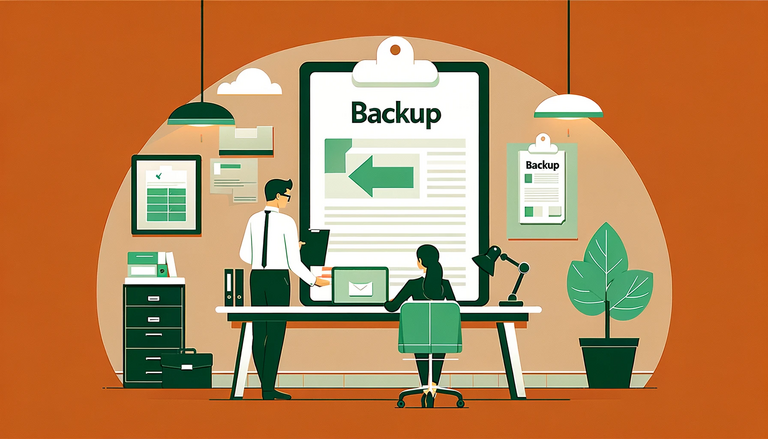Backup withholding: Understanding its purpose, process, and implications

Backup withholding is a precautionary tax measure enforced by the IRS (Internal Revenue Service) to ensure that taxes are collected on certain types of income.
This mechanism is crucial for income types where regular withholding is not typically enforced, such as interest, dividends, and independent contractor payments.
In this article, we'll delve into what backup withholding is, how it operates, who it affects, and the obligations of both payers and payees under this system.
What is backup withholding?
Backup withholding is a form of withholding tax that payers apply to certain payments if specific conditions are met.
Unlike regular withholding, which is automatically deducted from an employee's paycheck, backup withholding is used primarily for non-employee income.
The IRS sets the backup withholding rate, which is currently at 24%.
Key scenarios triggering backup withholding:
- The payee fails to provide a Taxpayer Identification Number (TIN).
- The IRS notifies the payer that the provided TIN is incorrect.
- The payee fails to report all interest and dividend income.
- The IRS notifies the payer that the payee is subject to backup withholding due to underreporting of interest and dividends.
How backup withholding works
When backup withholding is required, the payer must deduct the mandated percentage from payments that would typically not be subject to regular withholding.
Backup withholding may apply to a variety of payment types.
Here is a list of common payments that could be subject to backup withholding if the conditions set by the IRS are met:
- Interest payments (Form 1099-INT): Payments made to individuals earning interest from accounts in financial institutions.
- Dividends (Form 1099-DIV): Payments made to shareholders from corporate earnings.
- Payment card and third-party network transactions (Form 1099-K): Transactions processed through payment cards or third-party networks.
- Rents, profits, and other income (Form 1099-MISC): Payments made to contractors or for rent that are not considered wages.
- Gambling winnings (Form W-2G): Winnings from gambling, which are subject to their own set of reporting requirements.
- Royalties (Form 1099-MISC): Payments made to individuals who receive income from royalties or broker payments in lieu of dividends or tax-exempt interest.
- Broker payments (Form 1099-B): Payments made in the course of a broker's services.
- Barter exchange transactions: Income from barter exchanges, credited to the accounts of the participants.
- Fishing boat proceeds (Form 1099-MISC): Payments of fishing boat proceeds to crew members of fishing boats.
Process for payers:
- Verify the payee’s TIN before making payments.
- Check IRS notifications regarding the correctness of the TIN.
- Withhold 24% of each applicable payment if conditions for backup withholding are met.
- Report the withheld amount to the IRS using Form 945.
Who is subject to backup withholding?
Backup withholding can apply to any US person, including individuals, corporations, partnerships, trusts, estates, and other entities that receive payments subject to information reporting.
However, not all payments and entities are subject to this type of withholding.
Here's a broader look at who might be affected and the exemptions that apply:
Affected entities
- Individuals: If an individual does not provide a correct TIN to the payer, they may face backup withholding on payments such as interest, dividends, or non-employee compensation.
- Businesses: Small businesses and self-employed individuals without correct TIN information or those that fail to report certain income might also be subject to backup withholding.
Exemptions
- Real estate transactions: Generally, transactions involving the purchase or sale of real estate are not subject to backup withholding.
- Foreclosures and abandonments: Payments related to the foreclosure on a property or the abandonment of property do not typically trigger backup withholding.
- State or local government and tax-exempt organizations: Payments made to government entities or organizations that hold tax-exempt status under the IRS guidelines are exempt.
- Certain payments to corporations: Payments made to corporations are usually exempt, except in specific cases such as legal services.
- Transactions involving exempt volume purchasers: Large-volume purchasers in certain transaction contexts may be exempt from backup withholding.
Additional exemptions
- Qualified retirement accounts: Distributions from IRAs, 401(k)s, and other qualified retirement plans are not subject to backup withholding.
- Certain vendor payments: Payments for goods and non-services are generally exempt, unless the vendor fails to provide a TIN.
- Tax refunds: Federal and state tax refunds are not subject to backup withholding.
Understanding the specific circumstances and entities affected by backup withholding is crucial for compliance.
Managing and reporting backup withholding
Effective management and accurate reporting of backup withholding are crucial for both payees and payers.
This process ensures compliance with IRS regulations and secures proper credit for taxes withheld.
For payees:
- Provide your payer with a correct TIN to avoid backup withholding. The TIN could be your Social Security number (SSN), Employer Identification Number (EIN), or Individual Taxpayer Identification Number (ITIN).
- Report the income and withholding on your tax return. The amount withheld can be credited against your total tax liability.
For payers:
- Ensure that backup withholding is correctly applied when required.
- Report the total amount withheld during the year on Form 945, "Annual Return of Withheld Federal Income Tax."
- Provide payees with a Form 1099 indicating the amount paid and the amount withheld.
Conclusion
Backup withholding serves as an essential tool for the IRS to collect taxes upfront from certain types of income that might otherwise evade the taxation process.
Understanding whether you are subject to backup withholding, or if you need to implement it as a payer, is crucial for compliance and avoiding potential penalties.
By adhering to IRS guidelines and ensuring proper reporting, both payers and payees can navigate the complexities of backup withholding effectively.
FAQ
Banks ask about backup withholding to ensure they comply with IRS rules for collecting taxes on account-generated interest when required, particularly if there’s no valid Taxpayer Identification Number (TIN) provided.
No direct penalty for the payee for the act of backup withholding itself, but failing to provide a TIN can lead to mandatory withholding. Payers can face penalties from the IRS for not applying backup withholding when required.
Yes, corporations are generally exempt from backup withholding on most types of payments such as interest, dividends, and rents. Exceptions include certain payments like legal fees.
Disclaimer: This article is for informational purposes only and does not constitute legal or tax advice. Always consult with a tax professional regarding your specific case.

Ines Zemelman, EA, is the founder and president of TFX, specializing in US corporate, international, and expatriate taxation. With over 30 years of experience, she holds a degree in accounting and an MBA in taxation. See more
Further reading


